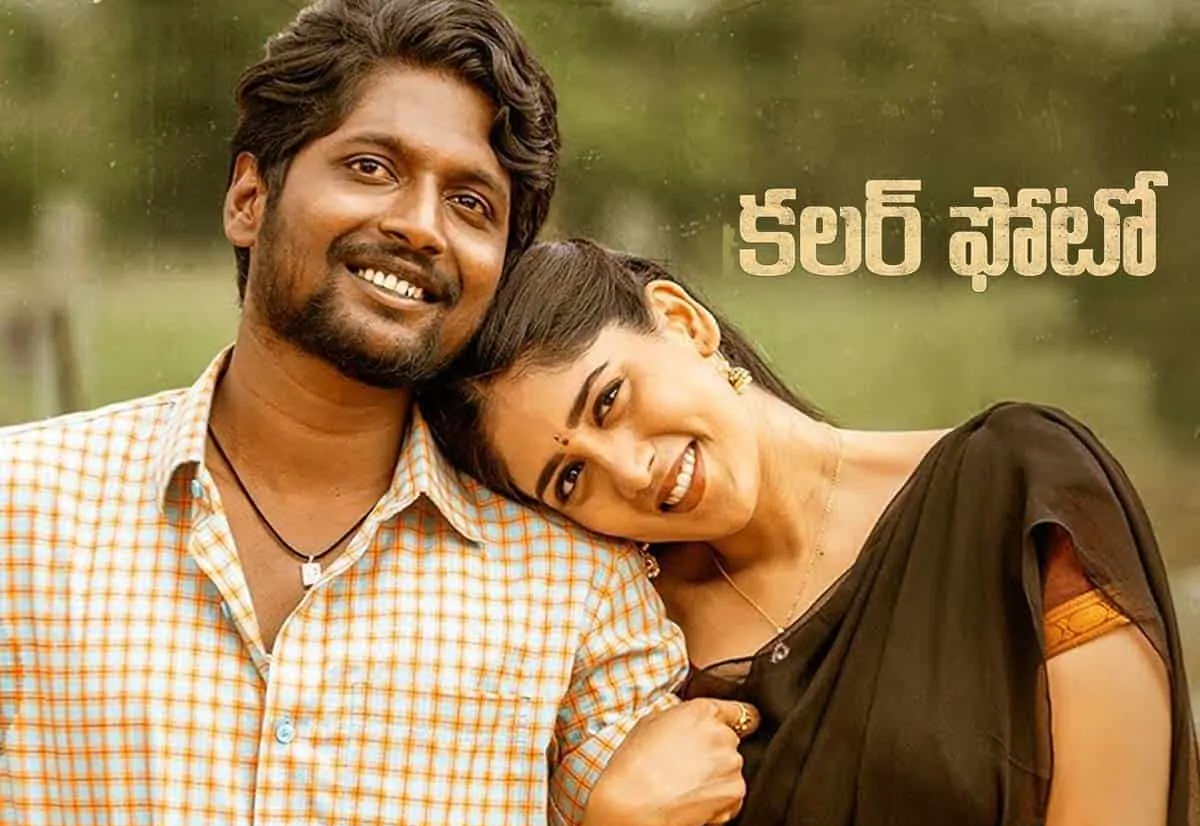Revisiting Baby (2023): Two Years Later, Sai Rajesh's Masterclass in Contemporary Romance Still Resonates

I've watched Baby multiple times since its release in July 2023 and each viewing gives me something new - which is pretty rare to be honest. That's usually the sign of something special: when a film keeps revealing new layers instead of seeming thin.
When I first caught it in theaters, I walked out knowing I'd witnessed something different. Remember, this was a ₹14 crore film that went on to collect over ₹100+ crores worldwide but the numbers tell only half the story. The real achievement is how Sai Rajesh managed to create a love story that refuses to let you pick sides.
The Uncomfortable Truth About Young Love
Baby follows three characters: Anand (Anand Deverakonda), the auto driver who failed tenth grade, Vaishnavi (Vaishnavi Chaitanya), his childhood love navigating elite college life and Viraj (Viraj Ashwin), the wealthy classmate who represents everything Anand can't provide.
What struck me wasn't the familiar setup - it was how brutally honest Rajesh was about each character's worst impulses.

What I realized on repeat viewings is that none of these people are fully formed yet. They're making decisions based on incomplete understanding of themselves and the world. Anand becomes possessive not because he's inherently toxic, but because he's terrified of losing that one good thing in his life.
Vaishnavi gets swept up in college glamour not because she's materialistic but because she's suddenly exposed to possibilities she never knew existed. Viraj uses his privilege because it's the only currency he knew.
This isn't a film about villains and heroes - it's about young people making catastrophic mistakes while thinking they're in love.
Performance Excellence That Elevates Everything
Anand Deverakonda's Career Defining Work
I've followed Anand since Middle Class Melodies, but Baby is where he truly arrives as an actor. What impressed me most is how he finds the humanity in every moment without falling into the "angry young man" trap that's easy for actors in this kind of role.

His performance feels lived-in rather than performed. You can see the internal struggle in his expressions - someone genuinely trying to understand emotions he's never had to process before.
The way he carries himself changes throughout the film becoming more hunched and defensive as circumstances spiral. That kind of physical transformation speaks to an actor who's really thought about his character's journey.
Vaishnavi's Breakthrough Moment
What blew me away about Vaishnavi's work is how she makes Vaishnavi's transformation feel completely organic. She navigates between two versions of herself - the person she is at home versus who she's becoming in college - without ever making it feel like she's switching between "modes".
Her portrayal captures something specific about being young and caught between worlds. The internal conflict is always visible in her expressions even when she's trying to project confidence. This is sophisticated character work that shows real understanding of the role's complexity.
Why Viraj Isn't Just Another Rich Guy!
Viraj could have been a simple rich boy antagonist but he finds the person underneath the privilege. He plays the character with a kind of oblivious entitlement that feels authentic rather than cartoonish. You understand why he acts the way he does even when you disagree with his choices.

The Music That Holds Everything Together
The music deserves special recognition! Vijai Bulganin has created something that goes beyond typical film scoring. The songs integrate seamlessly into the narrative flow and you never find them like commercial breaks from the story.
What Vijai achieved is rare - music that enhances emotional moments without overwhelming them. The background score supports the performances rather than trying to manufacture emotions the scenes don't earn. There's a sophistication to how he uses silence and space that shows real maturity as a composer.
How the Technical Team Elevated Everything
Cinematography with Purpose
M.N. Balreddy's cinematography work deserves recognition for how it captures the distinct worlds these characters inhabit. The visual contrast between the intimate, community focused environment of the slum and the more spacious, aspirational college setting helps establish the emotional distance Vaishnavi travels.

The camera work never calls attention to itself but consistently supports the storytelling. The framing choices feel deliberate - closer during intimate moments and more distant during emotional disconnection.
Editing That Maintains Momentum
Despite the substantial runtime, Viplav Nyshadam's editing keeps the film engaging. The way sequences are structured allows you to understand each character's perspective without feeling like you're being forced to sympathize with anyone in particular.
The parallel editing between different characters' experiences builds tension naturally showing how the same events affect everyone differently.
Sai Rajesh's Directorial Maturity
What Sai Rajesh accomplishes shows significant growth from his previous work. The way he structured this narrative - beginning with the aftermath and then showing us how we arrived there - demonstrates confidence in his storytelling abilities.
But what really impressed me is how he never judges his characters. Every decision, even the destructive ones, makes emotional sense from that character's perspective. That kind of empathetic writing is difficult to achieve, especially in a commercial context.

His handling of class dynamics is particularly smart. Rather than taking obvious political stances, he simply shows how economic disparity creates impossible emotional situations. The film explores these themes without being preachy about them.
Why This Resonates Beyond Entertainment
Baby succeeded commercially for sure but its real achievement is starting genuine conversations about contemporary relationships. This film deals with real issues young people face - social mobility, economic pressure, identity formation - without offering easy solutions.
What makes it special is how it trusts audiences to grapple with complexity. Instead of providing clear moral guidance, Rajesh presents situations and lets viewers draw their own conclusions. That respect for audience intelligence is what separates memorable filmmaking from forgettable entertainment.
The Ripple Effect
The film's success has extended beyond box office numbers. The fact that it's being remade in Hindi indicates how its themes resonate across regional boundaries. These aren't just Telugu characters dealing with local issues - they represent universal experiences of young people navigating love in economically stratified societies.

Making Every Rupee Count
What's particularly impressive is how much production value Rajesh extracts from his budget. The film looks and sounds expensive without actually being expensive. This speaks to thoughtful resource allocation and creative problem-solving throughout the production process.
The seamless integration of all technical elements - music, cinematography, editing, production design - creates a unified artistic vision that serves the story rather than distracting from it.
The Streaming Success Story
Since premiering on Aha in August 2023, the film has found new audiences who appreciate its layered storytelling approach. The streaming success demonstrates that there's appetite for this kind of sophisticated commercial filmmaking.
Why It Continues to Matter
Eighteen months later, I still think about these characters and their choices. That's the test of effective storytelling - does it stay with you beyond the viewing experience? When I encounter similar real-life situations, I find myself thinking about the film's exploration of these dynamics.
The lasting impact comes from how honestly it portrays the messiness of human relationships. Rather than providing comforting answers, it asks difficult questions about love, ambition and growing up in modern India.
Sai Rajesh's Remarkable Journey: From Debut to National Recognition"
I've been following Sai Rajesh's work since his early days and watching his evolution has been fascinating. His directorial debut Hrudaya Kaleyam in 2014 showed a filmmaker willing to experiment with different genres and storytelling approaches. Then came Kobbari Matta in 2019.

But the real turning point was Colour Photo in 2020. As the writer and producer of that film, Sai Rajesh crafted a story about color discrimination that was both deeply personal and universally relevant.
The fact that it won the National Film Award for Best Feature Film in Telugu validated his approach to content-driven cinema. What impressed me most was how he tackled a sensitive subject like color-based discrimination without being preachy - the same nuanced approach he brings to Baby.
The progression from his debut to Baby shows a filmmaker who's constantly pushing himself. Each project builds on the previous one's learnings and with Baby you can see all those years of growth culminating in his most confident work yet.
SKN: The Producer Who Backs Bold Stories
In an industry where producers often chase safe formulas, SKN's decision to back Baby shows real vision. This wasn't just about the ₹14 crore budget - it was about believing in a story that refused to give easy answers.
What strikes me about SKN's approach is how he seems to understand that good content will find its audience. The success of Baby - earning over ₹100+ crores worldwide validates his faith in Sai Rajesh's storytelling abilities.
What Stays With Me!
Baby represents exactly the kind of filmmaking that pushes Telugu cinema forward - commercially viable stories that don't compromise on emotional or intellectual complexity. Sai Rajesh has proven that audiences will respond to sophisticated storytelling when it's presented with skill and authenticity.
For anyone interested in contemporary Telugu cinema, this film is a must watch. It's available on Aha and I'd recommend watching it at least twice - the layers of characterization and thematic depth demand multiple viewings.

In an industry that often plays it safe, Baby took risks with its moral ambiguity and complex characterizations. The fact that those risks paid off both artistically and commercially should encourage more filmmakers to trust their audiences with challenging material.
This is filmmaking that respects both entertainment value and artistic integrity - exactly what cinema should aspire to be.



